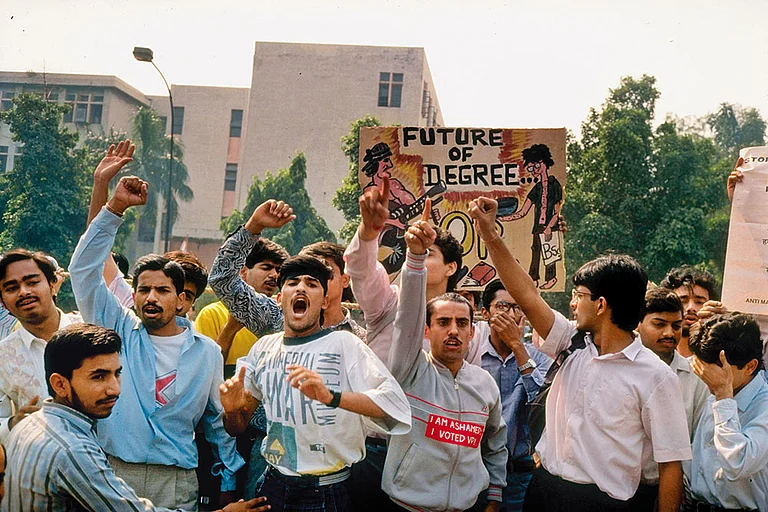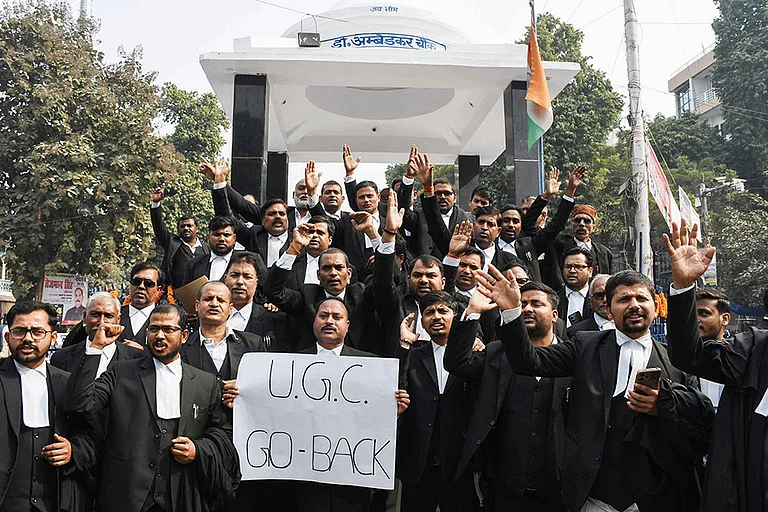An umbrella of farmer unions will organise protests across the country on Thursday, July 8, over the sharp rise in fuel prices.
Groups of farmers have already assembled at designated protest sites on the call of the Samyukta Kisan Morcha (SKM).
According to the SKM, protests will be organised across India between 10 am to 12 noon for two hours against the hike in diesel, petrol, and cooking gas prices.
“Supporters will park their vehicles – including tractors, cars, trucks, buses, motorcycles – on one side of National or State Highways,” said Abhimanyu Kohar of SKM. The joint platform of unions has been organising protests over the three farm laws.
The organisation has also appealed to maintain calm and keep the demonstration peaceful, without blocking any carriageways.
“Care has to be taken that there is no traffic congestion,” Kohar stated while briefing, adding, “anybody responsible for traffic snarls will be considered as not abiding by SKM directives.”
Women members will take to the streets with empty cylinders of cooking gas as a mark of protest over the hike in prices of LPG.
On Thursday, the price for a litre of petrol touched Rs.100.56 and that of diesel Rs.89.62 in Delhi. The SKM demanded that fuel prices be halved with immediate effect.
Thousands of farmers have been camping at Delhi's borders since November 2020, demanding a total rollback of the laws. With the Monsoon Session of Parliament beginning July 19, the SKM has drawn up several schedules to up the ante.
It includes a march to Parliament and protests at the doorsteps of MPs. Beginning July 22, at least five farmers from each protest site at Delhi’s borders will march towards Parliament and raise slogans against the laws.
On its part, the government has repeatedly asserted that the three agriculture laws would bring revolutionary changes in the lives of farmers. It has also been made clear that further negotiations will be held only if the farmer unions drop their demand of a repeal of these laws.
Eleven rounds of talks have already been held between the Union Government and protestors, the last being on January 22.
The contentious laws are the Farmers' Produce Trade and Commerce (Promotion and Facilitation) Act, 2020, the Farmers' (Empowerment and Protection) Agreement on Price Assurance and Farm Services Act, 2020 and the Essential Commodities (Amendment) Act, 2020.
The protesting unions have also demanded enacting laws to guarantee a minimum support price for crops.


























